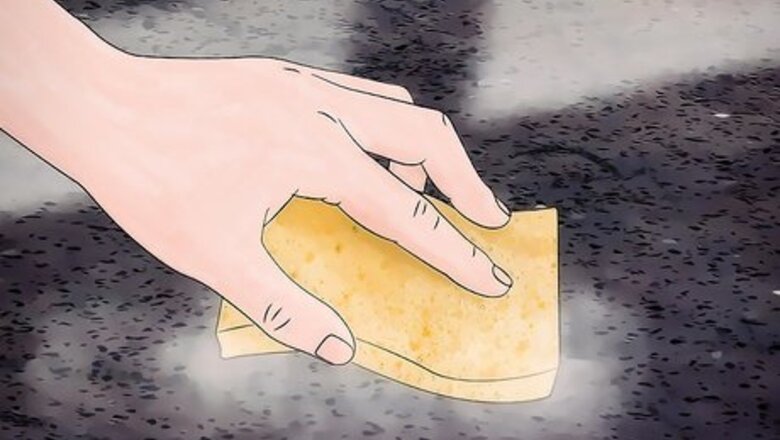
views
Evaluating the Severity of Your Scratch
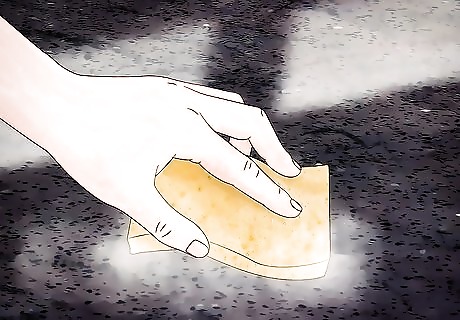
Wash the scratched area. Depending on the state of your counter top, you may only need to clean your counter top with warm water and a mild soap to remove any dirt, grime, or buildup from it. This will allow you the clearest view of the scratch so you can decide whether or not this is a DIY fix or something requiring a professional. You'll want to remove any buildup has occurred inside the scratch. To do so, you may have to allow your counter top to soak in a mild cleaner before wiping the cleaner away. Stubborn grime that is firmly lodged in your scratch can be scraped out with a small tool or cleaning implement, like a toothpick or a cotton swab. Use cleaner and your tool to completely cleanse the scratch of buildup. For especially greasy counter tops, you may have to resort to more extreme measures. You can use acetone on your granite to ensure a good degreasing. Make sure there is good ventilation in the room before applying your acetone to prevent the harmful fumes from building up.
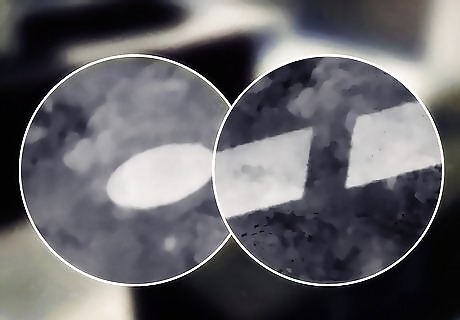
Investigate the scratched area. The color of your granite can have an impact on the visibility of scratches; scratches in light colors will likely be more apparent than those in darker colors. You may want a ruler or a tape measure on hand so you can more precisely evaluate the size and depth of your scratch. If the scratch you are dealing with appears to be quite small, apply some water to it. If the water makes your scratch disappear, it's highly likely you can remedy this scratch on your own. Scratches that are larger than ½ inch (1.25 cm) long and 0.08 inch (2 mm) deep are considered to be serious blemishes in your stone. It's unlikely you will be able to remove these yourself.
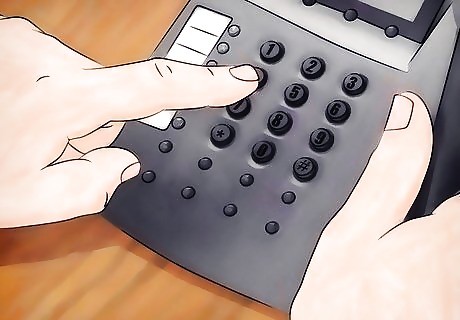
Contact a professional, if necessary. The dealer or contractor who sold and/or installed your granite counter tops may also do restoration and repair work. You might see if he can assist your in your granite repair or recommend someone who is qualified to do the same. Deep scratches will need to be ground down with diamond pads until the top layer of the granite with the scratch in it is removed. Then the surface must be repolished evenly. Both of these processes, if done incorrectly, can further damage or even ruin your counter top.
Buffing out a Scratch
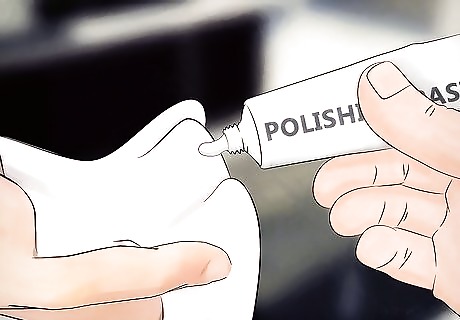
Remove etching with polishing paste. This measure should only be taken if your counter top is already polished. Etching occurs when a substance corrodes your counter, leaving behind a very slight mark on it that often looks like a stain, cup ring, or small blemish. If you can barely feel the scratches in the surface of your counter, a polishing paste may be your best alternative. Make sure your counter top is completely free of soap or any other cleaning agent you used to clean the scratch. These substances may interact with your polishing paste unfavorably. Follow the directions on your polishing paste. Different brands will require different procedures for you to achieve best results. Generally, you should use a small amount of polishing paste to begin with and apply moderate pressure when polishing. In most cases, you'll only need a little of your granite polishing agent to remove etching.
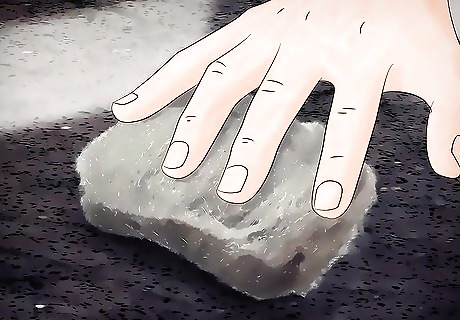
Use fine grade steel wool to buff out your scratch. Using a coarse grade sandpaper, steel wool, or buffing paper could result in damage to your granite counter top. As a general rule, to protect your granite, you should start with the most moderate grade available. In this case, you should use a dry piece of #0000 steel wool to buff out your scratch(es). Use moderate pressure when buffing and small, circular motions that centralize around your scratch. After several minutes of buffing, if you still notice no change in the appearance of your scratch, you'll have to make use of other measures. NOTE: more aggressive buffing procedures, using specialty granite sanding tools, can be used to remove your scratch. However, if improperly or inexpertly performed, these methods can result in permanent deformation of your granite.
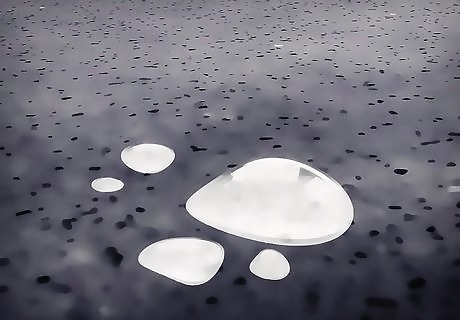
Test the seal of your granite after buffing. Buffing can remove the top coating of your granite, which is also called the seal. You can gauge whether or not your counter top needs to be resealed with a simple drip test. Simply... Sprinkle a few droplets of water on your counter. These should form water beads along the top of its surface. Allow the water to sit for 10 to 15 minutes. If the water has spread or left a dark spot on your counter, it's time to reseal your granite.
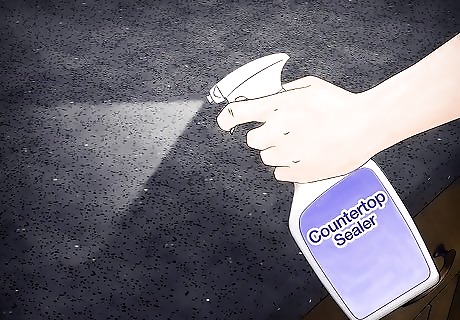
Reseal your granite counter top, if necessary. Your local hardware store should have a counter top sealer suitable for your granite. You should always follow the instructions that come with your sealer, but in most cases, to reseal your countertop you should: Re-clean the area with a mild soap and water. Your hands may have transferred dirt, oil, or grime back to the counter top. Cleaning again will prevent these from being trapped beneath the seal. Allow the counter to fully dry before sealing. Apply your sealer. In most cases, this will be done with a brush, though your sealer might recommend using a cloth for application. Most sealers only require about 15 minutes before adhering to the surface of your counter. Then you can wipe any excess sealer away with a dry cloth, and buff the area with small circular motions using a microfiber cloth.
Disguising a Scratch
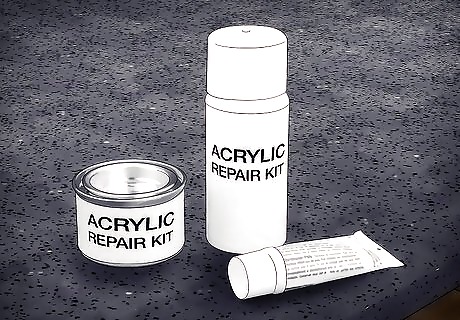
Fill in the scratch with an acrylic repair kit. These kits are specifically intended to repair small scratches or pits in your granite by filling the afflicted area with a hard drying clear acrylic patch. For this kind of treatment to be effective, you'll need the scratch to be deep enough for the acrylic to take root. Scratches that you can feel obviously with your fingers are good candidates for acrylic repair. Very light scratches and etching can best be remedied with a polishing agent or light buffing. There are many different kinds of acrylic granite repair kit, including gels specifically formulated for counter tops. You'll have to follow the instructions labeled on yours carefully when applying it to the scratch. In some cases, the application of your acrylic may be as simple as administering it to your scratch, chip, or pit, waiting a designated period of time, and wiping away excess.
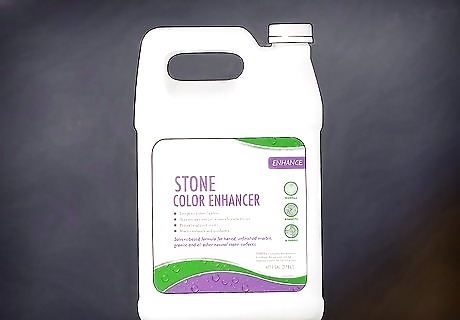
Conceal small scratches with a stone color enhancer. A color enhancer can brighten the color of your granite to its original hue, but a color enhancer can also hide small scratches that appear over time. This treatment can work especially well for scratches that are invisible when wet. You should follow the directions that came with your color enhancer, but generally you should: Make sure the area you are about to color enhance is clean and free of any residue. The surface should also be dry unless otherwise indicated by your enhancer. You may want to test your color enhancer before applying it to a highly visible part of your counter. Use a small amount of enhancer on an out of view spot to make sure the enhanced color is to your liking. Use a clean rag to administer your color enhancer. Allow the enhancer to sit on your counter top for the time indicated in the instructions - usually about 15 minutes. Then wipe away any remaining enhancer with a clean rag.
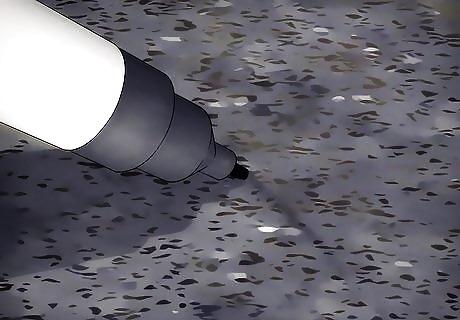
Hide your scratch with a permanent marker. This works especially well for black granite. Scratches often leave behind a color that is lighter than the surface of your stone, but these can be rendered invisible with a permanent or paint marker matching the color of your counter. All you need to do is... Color in the scratch with your permanent or paint marker until the scratch is no longer clearly visible. Then wipe the area with a cloth dampened with denatured alcohol to erase any unnecessary color.











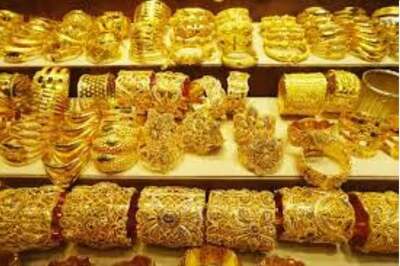


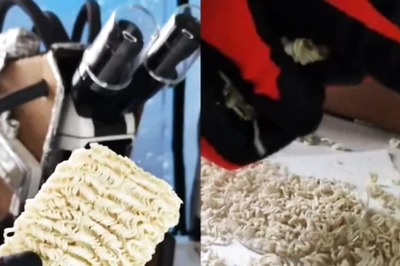




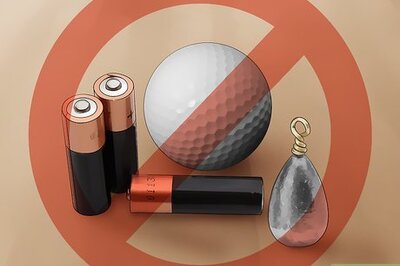
Comments
0 comment